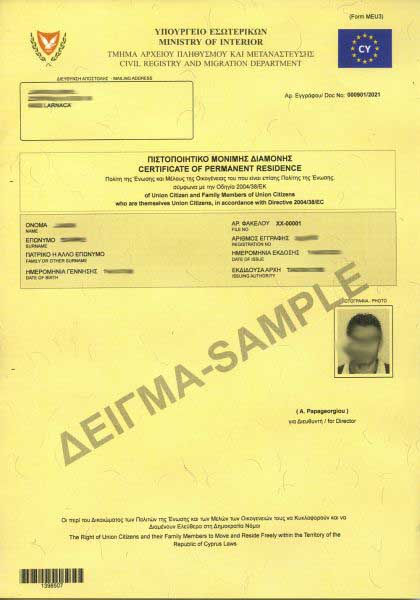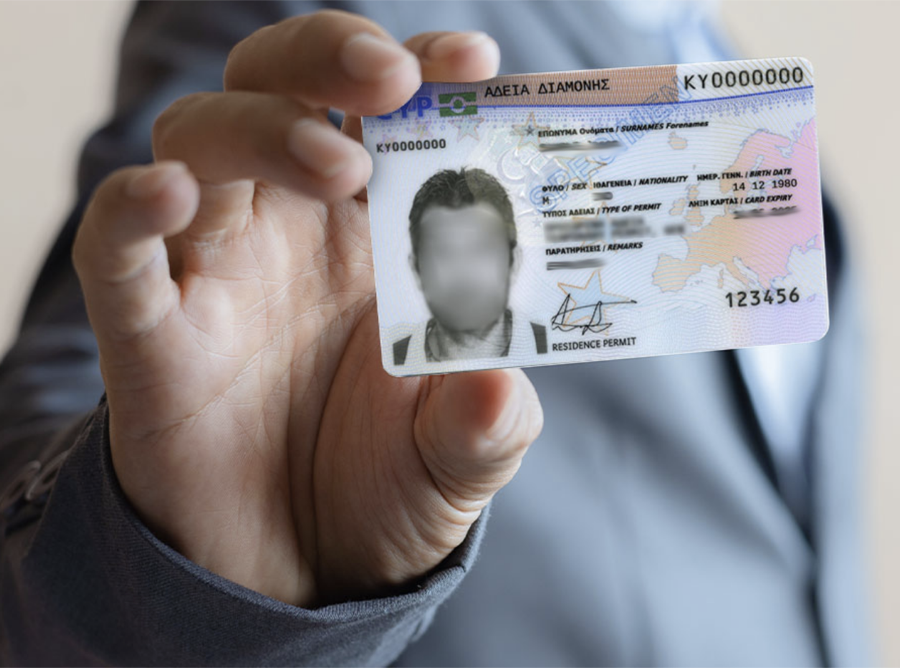‘Yellow slips’ must be upgraded to Etias-recognised biometric cards
Many British citizens living in Cyprus will not be exempt from the European Travel Information and Authorisation System (Etias) when it is implemented next year.
The European Commission confirmed to the Cyprus Mail that the “yellow slip”, which British citizens obtained when moving to Cyprus prior the country leaving the European Union ended on December 31, 2020, will not allow its British holders to exempt themselves from applying for a visa waiver through Etias when travelling to most of Europe.
“Residence documents issued to United Kingdom nationals and their family members under the EU free movement directive before December 31, 2020 will not exempt from registration [in Etias], regardless of whether these documents can still be exceptionally used in the host state to establish the withdrawal agreement beneficiary status there,” the European Commission said.
As such, British nationals living in Cyprus who hold “yellow slips” – and have not ‘upgraded’ them for an Etias-recognised biometric card – will be part of a very small group of EU residents who will, from next year, be charged a fee to enter most of the rest of the EU.
This is because the Etias system will change the way in which many third-country nationals are able to travel in and out of most of Europe, as and when it is implemented. No concrete date has yet been set, but it is widely expected that the system will come into force next spring.
The system has been implemented for nationals of countries on the Schengen zone’s “Annex II” list; those who currently have the right to enter the area for a maximum of 90 days in any 180-day period without a visa.
Annex II countries include Australia, Canada, Georgia, Moldova, Ukraine and, since Brexit, the United Kingdom.
With Etias, gone will be the days of Annex II nationals receiving a stern look from a border guard and then a stamp in their passport before getting on their way, with would-be visitors to a total of 30 countries across Europe, as well as four more indirectly, soon to be required to apply online in advance.
The 30 countries in question are 26 of the EU’s 27 member states, with the Republic of Ireland not partaking, as well as the four European Economic Area states of Iceland, Liechtenstein, Norway, Switzerland, and Europe’s microstates, which, while not members of the EU or EEA, are surrounded on all sides by Etias-enforcing countries.
As such, the microstates’ citizens, the Pope included, will all be exempt from Etias.
In addition, those holding other visas, such as residence permits, work permits, or student visas in any of the 30 countries or the Republic of Ireland, will also be exempt from Etias, but only if those documents comply with the EU’s strict laws regarding residence permits’ format – namely a standardised biometric format.
Since 2002, the EU has stipulated this biometric card for all residence permits for third country nationals, and most EU countries required UK citizens covered under the withdrawal agreement to replace their pre-Brexit documentation.
This brings us to the matter of Cyprus, and more specifically, UK citizens living here.
The UK’s withdrawal agreement stipulated that all UK citizens would lose their right to freedom of movement in Europe, even those who were already exercising it.
Those who were exercising that right had their status in the country in which they were living on December 31, 2020, effectively commuted to a lifelong residence permit, while losing all their related rights on the rest of the continent, except for in the Republic of Ireland where a separate agreement exists.
This being the case, most EU member states issued their British residents with a new residence permit which complies with the 2002 law regarding the format of residence permits.
Short of that, some states issued documentation which explicitly stated that the holder was a withdrawal agreement beneficiary, which, according to the law regarding Etias, is enough to exempt its holder.
However, Cyprus did no such thing, with the “yellow slip”, which in its original form is not a residence permit but a certificate to prove that an EU or EEA citizen is exercising their freedom of movement rights in Cyprus, was de facto upgraded to a residence permit in the case of UK nationals.
Until now, this had not been a problem. As Cyprus is outside the Schengen zone, a UK national who lives in Cyprus faces the same procedure as one who lives in Cirencester when they wish to enter the Schengen zone, while a glance at a yellow slip and a nod from a border guard was enough to enter Cyprus.
However, with almost all other residents of the EU now exempt from a fee and an online application to enter other EU member states, eyebrows may be raised by British nationals living in Cyprus as to why they are not.
The Cypriot government had appeared in previous months to have at least been aware of the situation, quietly introducing a new optional card with which UK nationals covered by the withdrawal agreement could replace their yellow slips.

UK nationals covered by the withdrawal agreement would, according to the interior ministry, once again have to present themselves to either the migration department or a district office, before being photographed, having their fingerprints scanned, and paying a fee.
The card, unlike the yellow slip, would have an expiry date, too, with a new card, another visit to the migration department or a district office, and another financial outlay required every ten years henceforth.
The card was biometric and probably compliant with EU regulations, but the pages on the interior ministry’s website which once contained information about the new cards, the costs involved, and the supporting documentation UK citizens would be required to produce, now show up as 404 errors on the interior ministry’s website.
This may be due to the fact that the issue of migration has now been delegated to the deputy migration ministry, which, at present, does not have a website of its own.
The Cyprus Mail hasraised the issue with the deputy migration ministry on several occasions and is still awaiting a response.







Click here to change your cookie preferences